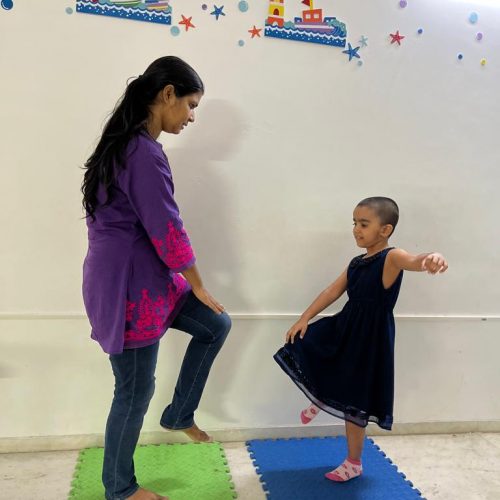Gross Motor Skills:
It involves the large muscles of the body that enable such functions as walking, kicking, sitting upright, lifting, and throwing a ball.
Gross Motor skills are important for major body movements such as walking, maintaining balance, coordination, jumping, and reaching. Gross motor abilities share connections with other physical functions. A student’s ability to maintain upper body support, for example, will affect his ability to write. Writing is a fine motor skill. Students with poor gross motor development may have difficulty with activities such as writing, sitting up in an alert position, sitting erect to watch classroom activity, and writing on a blackboard.
Fine Motor Skills:
Fine motor skills involve the small muscles of the body that enable such functions as writing, grasping small objects, and fastening clothing. They involve strength, fine motor control, and dexterity.
These skills are important in most school activities as well as in life in general. Weaknesses in fine motor skills can affect a child’s ability to eat, write legibly, use a computer, turn pages in a book, and perform personal care tasks such as dressing and grooming.
Goals for Development:
Evaluation by an occupational therapist can determine if Child’s fine motor skills are a concern and if therapy can improve them.
With the goal of developing fine motor skills, including activities like handwriting, cutting, buttoning, and self-care tasks, occupational therapists focus on the use of personalized techniques and exercises to enhance hand-eye coordination, dexterity, and other abilities.

